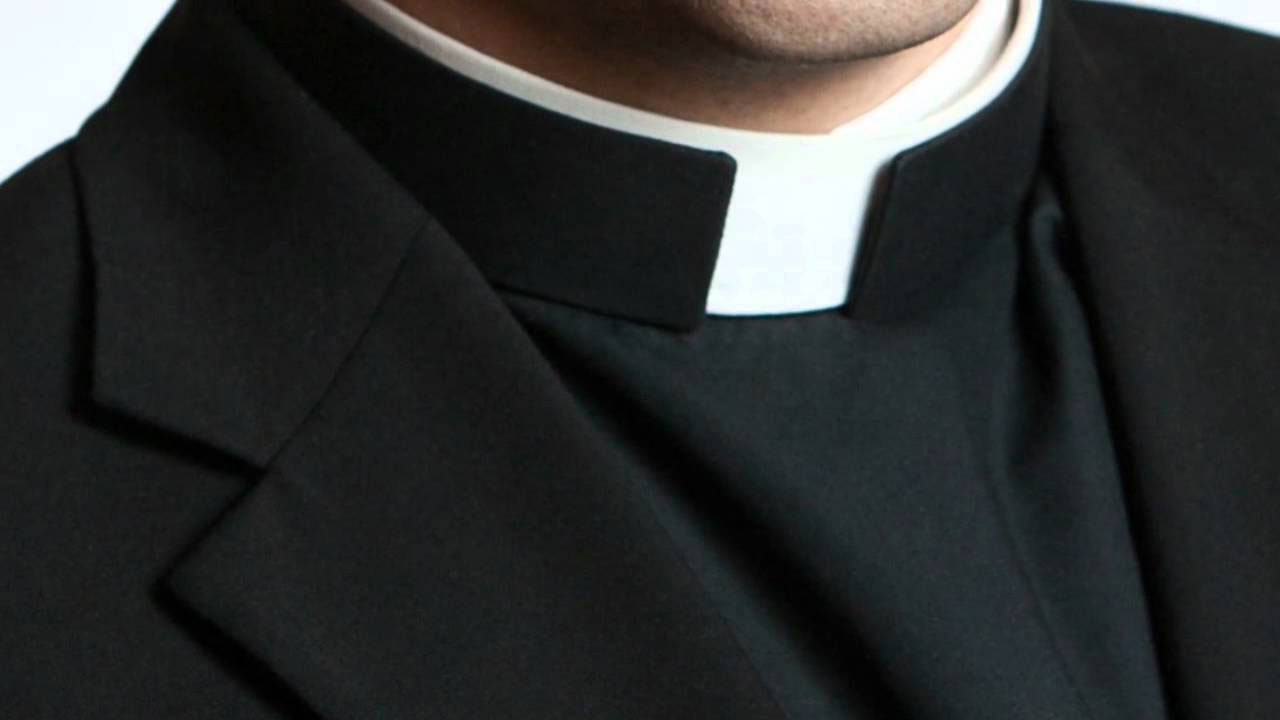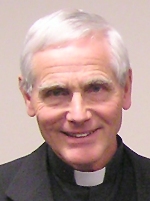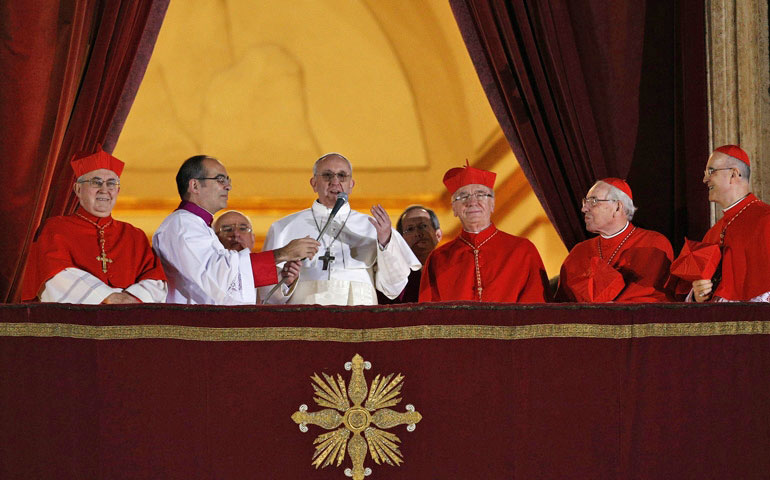Professionalism and the priest. What a strange title for an article on the priesthood! Priesthood isn’t a profession – it’s a vocation. Agreed. It is above all a vocation, a calling from God from all eternity to serve souls in the ministry, making Jesus Christ present in his three offices of priest, prophet and king.
But there are aspects of priestly ministry that call for professionalism – doing things in the way a good lawyer, doctor or accountant would – and if we fail in that regard we would be letting our people down. And they would be – indeed they are – quick to judge us. I suspect we have all heard the complaints, if not about us, then about other priests.
Priestly Dress
Like what aspects? Like the way we dress, for example. When we go to see a doctor or a lawyer, we expect him to be well dressed, probably with at least a good shirt and a tie, if he has taken off his suit coat. If he were wearing jeans and a T-shirt, we would immediately make a negative judgment not only about his dress sense but also about his professional expertise and his respect for us.
Years ago, when I was chaplain of the University of Tasmania, a law student came to see me wearing a coat and tie and I asked him why the formality. University students don’t normally dress that way anywhere these days. He explained that he had just been working at Legal Aid and the Law School had told him that he should dress well, as it inspired more confidence on the part of the people coming for legal advice. That is just human nature.
It applies to us priests too. When we are shopping, visiting a hospital, walking through the city or sitting on a train or airplane, our priestly dress tells everyone who we are, and that we are there to serve them. Just as we expect shop assistants in a department store to wear a uniform so that we can call on them when needed, and the same for policemen for that matter, so people benefit from knowing that we are a priest. For all we know they may be looking for a priest at that very moment. How many times have we been stopped by a total stranger and asked a question about the faith, asked for advice, asked to bless a rosary or asked to hear a confession?
Once on a Melbourne tram I was approached by a man who turned out to be a heroin addict and a fallen-away Catholic. Our long conversation led to him finding a rehabilitation program and going to confession a few days later. Or the time I was visiting a man in a hospital and was asked to say hello to a woman in her nineties in an adjacent bed, leading to her going to confession and receiving Communion for the first time in over 70 years. Or the time I stopped at a McDonald’s drive-in and realised they were charging me too little. ‘Half-price for priests’, I was told! We all have stories like these.
I could tell numerous others, but will conclude with the one of the priest sitting in Golden Gate Park in San Francisco saying the Divine Office when a distraught man approached and explained that he had just gone home and found a note from his wife saying she was leaving him. He was on his way to the bridge to jump off when he saw the priest in the park and decided to talk with him. The priest calmed him down and the man went home reassured. Eventually his wife returned as well.
Wherever possible, the same standard applies when we are at home. If we answer the door to the presbytery dressed in jeans and a T-shirt, the person who has come to see us may make the judgment that we do not really care about them, that we are not there to serve them as a priest. The excuse that it is our day off, or that we are not on duty, wouldn’t go very far to put them at ease. A priest in a presbytery is always ‘on duty’ – to hear a confession, give advice on a marriage situation or attend to a dying person. Our priestly dress in that situation sends a strong message: that we are available to attend to them as a priest.
Giving Advice
Then there is the matter of how we give advice. When we go to the doctor, the lawyer, the accountant for advice on how to proceed in a given matter, we expect them to explain the various options and the pros and cons of each, so that we can make an informed choice. If they were to leave something out or mislead us and there were serious consequences, we would consider suing for professional negligence. What does that have to do with us priests, since we are not giving advice on professional matters? We are not, but in one sense our advice has even more serious consequences, like the possibility of eternal damnation or the breakup of a marriage.
Many years ago a priest friend commented on how times have changed – that before we used to tell people what to do and now we let them make up their own minds. My comment on that is that we never told people what to do. But we did explain the consequences of the various options and we tried to give them prudent advice so that they could make up their mind in a responsible and informed way.
Take the matter of the use of contraception, or having an abortion, for example. It would be seriously negligent simply to listen to the person contemplating these choices and tell them they should pray about it and make up their own mind. Love for God and for them demands that we explain how seriously wrong these choices are, to a point where they could jeopardise their eternal salvation as well as their happiness here on earth if they followed them.
I have never heard of a priest going to court over a matter of professional negligence for not explaining the full consequences of a moral choice. But what is truly frightening is having to face the divine Judge when we have failed our people in matters like these.
The words of the prophet Ezekiel come to mind:
So you, son of man, I have made a watchman for the house of Israel; whenever you hear a word from my mouth, you shall give them warning from me. If I say to the wicked, O wicked man, you shall surely die, and you do not speak to warn the wicked to turn from his way, that wicked man shall die in his iniquity, but his blood I will require at your hand. But if you warn the wicked to turn from his way, and he does not turn from his way; he shall die in his iniquity, but you will have saved your life (Ezek 33:7-9).
Punctuality
Another aspect of professionalism is punctuality. We all know that when we go to see a doctor we will have to wait for up to an hour beyond our scheduled appointment time! So doctors are the exception. We understand them, because they are seeing patient after patient and some of them may take longer than expected. But that is generally not our case as priests.
When people come to see us at a particular time, we should be there for them, or at least have the courtesy to inform them that we are running late. And if we have scheduled a meeting, or a class or a wedding rehearsal, we should endeavour to be there on time. Not to do so sends the message that we don’t care much about them, that we are not really there to serve them, as was Jesus Christ, who came not to be served but to serve.
Mass and other liturgical celebrations should start on time too, especially because many people have scheduled other activities around these celebrations and they may need to leave punctually afterwards.
Reliability
Related to punctuality is reliability. If the doctor or lawyer is to prepare a report or send a letter, we expect him to do so in a reasonable period of time. Likewise, if our people have asked for a baptismal certificate or some other document we should be professional enough to send it to them promptly. The same applies to reports and accounts to be sent to the chancery and to marriage papers to be sent to the registry office and to the parish of baptism. If we do not send these papers promptly they can become misplaced, sometimes with serious consequences.
Due Preparation
Another important matter is our preparation of homilies, classes and talks. We expect a professional person to be polished in the delivery of talks and conferences and people expect the same from priests. They know when a homily or a class has not been well prepared, and they may feel let down as a result. We owe them our best in these areas because in many cases we are the only voice of the Church for them in its prophetic mission of teaching.
Fidelity
Professionalism applies too to the teaching we give and our general fidelity to the practices of the Church. If we hear a Qantas employee criticising the company’s management or obviously ignoring company policy, we are scandalised and we don’t expect the person to last long in the job. If they are not happy working for Qantas, they should go somewhere else, not stay in the job and undermine Qantas’ reputation. No company would tolerate such conduct.
People expect the same from the Church, and unfortunately they don’t always get it. Sometimes they are even scandalised. A priest who disagrees with the Church on some matter should keep his opinions to himself and at least be loyal to the Church in all his public conduct. Whatever private opinions he may have about his bishop, or about Church doctrine or liturgy, he should follow the Church’s teaching on these matters. People expect it and they have a right to it. They are Catholics and they have a right to a Mass and a homily, or a sacrament, that are fully Catholic. They don’t want to hear their priest criticising the bishop or the Pope, and they don’t want to hear heresy from the pulpit. The Church is already criticised enough from the outside. It doesn’t need criticism from the very people who are there to defend, pass on and implement the Church’s teaching.
What is more, when a priest departs from the Church’s teaching or practice in his parish, he always creates division. There may be some parishioners who like his way of doing things but inevitably there will be many who don’t. When he follows the Church’s teaching, he does not create such division. We owe this to our people. Experience shows too that when the priest departs from Church teaching in a notable area, he loses parishioners very quickly. Some may go to another parish but some may stop going to Mass altogether. We are here to build up the Body of Christ, not to divide it.
Keeping Up-To-Date
Yet another aspect of professionalism is keeping up to date on matters that affect our ministry. We expect our doctor to have read the medical journals and to have attended conferences so that he is up to date on new procedures, diagnostic techniques and therapies. While Church teaching is not constantly changing like medicine, there are always new documents coming out and we should be familiar with them so that we can pass on to our people their essential content. A parish is greatly enriched when its pastor refers occasionally to ideas from a recent papal Encyclical or Apostolic Exhortation, or to a document from the local bishops.
If the priest has read Pope Benedict’s Encyclical Caritas in veritate, or his Apostolic Exhortation Verbum Domini he can form his congregation very well and encourage them to read these documents for themselves. Similarly, he should be referring often to the Year of Grace proclaimed by the Australian bishops and to the Year of Faith in the universal Church. In general he should be very familiar with the Catechism of the Catholic Church and he should pass on some of its content through his homilies and classes, especially at this time.
And of course if his people ask him a question about the Church’s teaching on some matter, he should generally know the answer or at least be able to give it to them in a short period of time. People expect competency from us just as they expect it from a professional.
Apart from reading official Church documents, the priest will be a better pastor and he will find new ideas if he subscribes to journals and magazines that are relevant to his ministry. And it is worth mentioning that the priest should also be reading books and magazines that enhance his general knowledge and cultural formation. These broaden his horizons and often provide ideas for preaching.
Availability, Affability & Generosity
Finally, there are general aspects of professionalism like availability, affability, generosity, etc. We expect our doctor, lawyer, or accountant to make himself readily available for his clients and to be in his office at the announced times. This has great applicability to our availability for the sacrament of Reconciliation. We should have announced times for this sacrament, the more the better, and we should be there for the full duration of those times. Likewise, we should be readily available by phone or other means if people want to speak with us. It is simply not professional for people to have to go to great lengths to find us. An answering machine on our telephone and on our mobile phone is generally sufficient. If they leave us a message, we should get back to them as soon as possible.
And we expect our doctor or lawyer to have a pleasant manner in relating to his clients. Even though professionals may have bad days in which they are under stress, are not feeling well or haven’t slept well, we still expect them to be patient and kind in dealing with us. Our people expect even more from their priest, since we represent Jesus Christ for them and we are called to holiness, with all that this implies as regards the human virtues. Among these virtues, in addition to affability, is generosity.
Professionals, especially doctors, are often called to give of themselves after hours, and people will complain if they are not ready to do so. All the more, priests, who are other Christs, should be available at any time, day or night, to attend to the urgent and not so urgent requests of their faithful.
While these requirements of professionalism might at times seem somewhat overwhelming, we can recognise our limitations and acknowledge that no one expects us to be perfect. But they do provide guidelines and subject matter for reflection and struggle, so that we can at least be better. People expect it from us and we do not want to let them down. In the end, it is a matter of love: “Love one another as I have loved you” (Jn 13:34).






